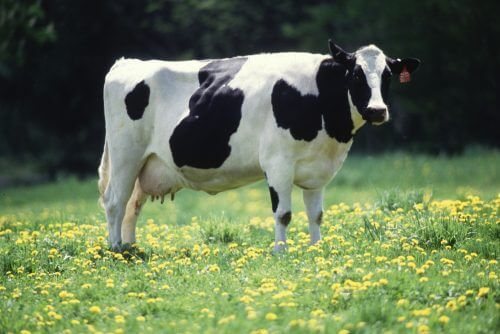The findings from the new research have far-reaching environmental implications, since the functioning of these microbial societies directly affects global warming

The research, led by Prof. Itzik Mizrahi from the Department of Life Sciences at Ben-Gurion University of the Negev, which was published in the Environmental Microbiology newspaper, was highlighted in the latest issue of the leading scientific newspaper Science.
Prof. Mizrahi and his research group investigate the structure and function of microbial communities in the digestive system of animals in general and ruminants in particular. The study found that the microbial society that inhabits the digestive system of young individuals changes its function in relation to the production of methane gas, which is a highly active greenhouse gas in global warming. The research findings have far-reaching environmental consequences, since the functioning of these companies affects the amount of methane gas that reaches the atmosphere.
Animals from the subseries of ruminants maintain a close relationship with the communities of microorganisms that inhabit their digestive system. These micro-organisms are responsible for breaking down the plant food that the animals consume and enable the digestion and absorption of its products.

The findings of this study show that methane gas production occurs in the microbial system of young individuals even before they switch to a plant-based diet and most of its production is done by microorganisms that utilize alcoholic molecules such as methanol. This is in contrast to the generation of methane in mature individuals which is carried out by groups of micro-organisms that utilize hydrogen.
The research findings add to the popular notion that most of the production of methane gas in ruminants is based on the utilization of hydrogen by microorganisms that inhabit their digestive system.
The research was supported by the YKA Foundation, the European Union Foundation and the Israel Academy of Sciences.

3 תגובות
my father
There are about a billion cows and another billion sheep in the world. And these two billion need to grow food...
All the elephants and rhinos in the world together do not reach half a million.
To my father
You didn't get confused by orders of magnitude?
If you put all the cattle on the earth on one side of the scales, and on the other side all the creatures you have listed: elephants, rhinoceros, zebras, wildebeest, doe and more - you will find that the weight of the cows outweighs them by counters. Without taking into account the flock!!
That is why the research in the article is very interesting and effective.
Just before all the vegetarians and vegans celebrate this article and blame the cows and the meat industry for global warming...
It should be remembered that elephants, rhinoceroses and many animals in nature also fart methane, methane is also emitted in large quantities from the production of fertilizer for agriculture, especially for organic agriculture to grow food for vegetarians and vegans as well.
Matan gas is emitted from the decay of plants, from swamps (that's why it is also called swamp gas).